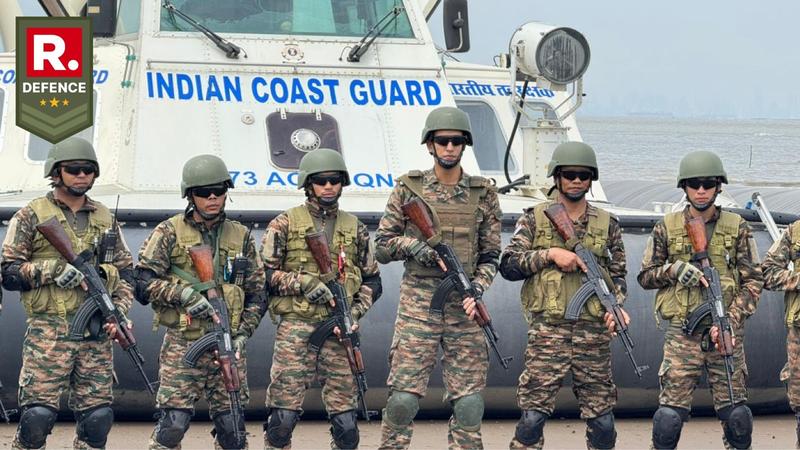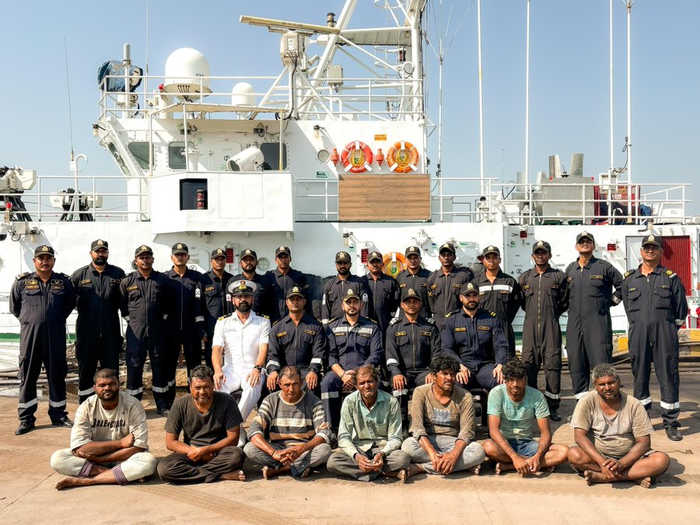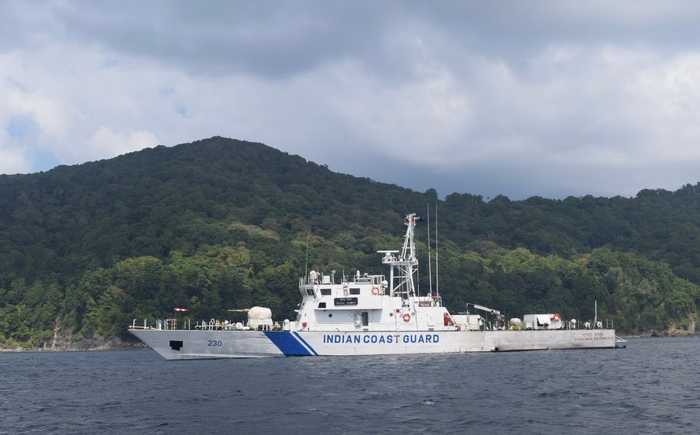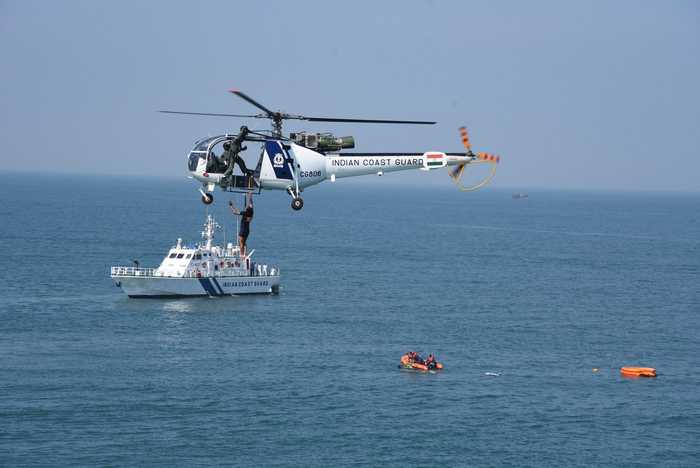Published 20:16 IST, November 18th 2024
Indian Coast Guard Forces Pakistani Ship to Release Captured Fishermen After Two-Hour Chase
In an operation near the maritime border with Pakistan, the Indian Coast Guard intercepted PMS Nusrat, thwarting its attempt to detain Indian fishermen.

New Delhi, India - In a dramatic operation near the India- Pakistan Maritime Boundary Line (MBL), the Indian Coast Guard (ICG) ship Agrim successfully rescued seven Indian fishermen on November 17, 2024, after they were apprehended by a Pakistan Maritime Security Agency (PMSA) ship. The two-hour standoff saw the ICG vessel intercept and engage the Pakistani ship, ultimately persuading it to release the detained Indian fishermen.
The incident began when the PMSA vessel detained the fishing boat Kaal Bhairav and its crew in Indian waters. Responding swiftly, ICGS Agrim, a Fast Patrol Vessel (FPV) of the Aadesh-class, chased the PMSA ship, intercepting it near the MBL. Despite attempts by the Pakistani vessel to retreat, the ICG's determined actions ensured the safe release of all seven fishermen.

The fishermen were found in stable medical condition, but the Kaal Bhairav was damaged during the confrontation and tragically sank. The ICG ship returned to Okha Harbour on November 18, 2024, with the rescued crew.
Following the rescue, a joint investigation was initiated at Okha Harbour involving the ICG, State Police, Intelligence Agencies, and Fisheries authorities. The probe aims to determine the circumstances leading to the collision and the subsequent rescue operation. Initial reports indicate that the Pakistani ship's aggressive manoeuvres may have contributed to the sinking of the Indian fishing boat.
About ICGS Agrim and Aadesh-Class Vessels
The successful rescue operation highlights the operational prowess of ICGS Agrim, part of the advanced Aadesh-class of Fast Patrol Vessels (FPVs) designed to protect India's maritime interests. These vessels are equipped with cutting-edge technology and exceptional manoeuvrability, making them ideal for high-speed operations in contested waters:
- Length: 50 meters
- Speed: Over 33 knots
- Propulsion: Triple Rolls-Royce Power Systems-supplied engines with water jets for agility in shallow waters.

Armed with a long-range gun and state-of-the-art navigation systems, the ships are capable of operating continuously for seven days at sea. Their lightweight construction with extensive use of aluminium ensures superior speed and performance. The Aadesh-class also accounts for advanced automation and navigation systems, including ECDIS and fibre-optic gyro-compasses. Notably, the ships have been specifically designed for high-speed response to maritime threats and emergencies.
Pakistan Maritime Security Agency’s Role
The Pakistan Maritime Security Agency (PMSA), a branch of the Pakistan Navy, is responsible for enforcing maritime law and protecting Pakistan’s interests in domestic and international waters. However, incidents like the unauthorized detention of Indian fishermen raise concerns over its adherence to international maritime norms.
The latest incident follows a series of confrontations along the maritime boundary, highlighting the need for constant vigilance in the Indian Ocean Region (IOR).

The swift action by ICGS Agrim not only ensured the safety of the detained fishermen but also reaffirmed India’s commitment to protecting its maritime sovereignty. As tensions in South Asia’s waters remain high, the incident underscores the importance of modern, capable vessels like the Aadesh-class in maintaining a robust maritime security posture.
While the rescue operation was a success, the loss of Kaal Bhairav highlights the risks faced by Indian fishermen in contested waters. The joint investigation at Okha Harbour will be critical in addressing these challenges and ensuring accountability for future incidents. India's proactive maritime defence measures continue to reinforce its stance against unwarranted aggression, protecting its citizens and territorial waters with unwavering resolve.
Updated 20:44 IST, November 18th 2024




